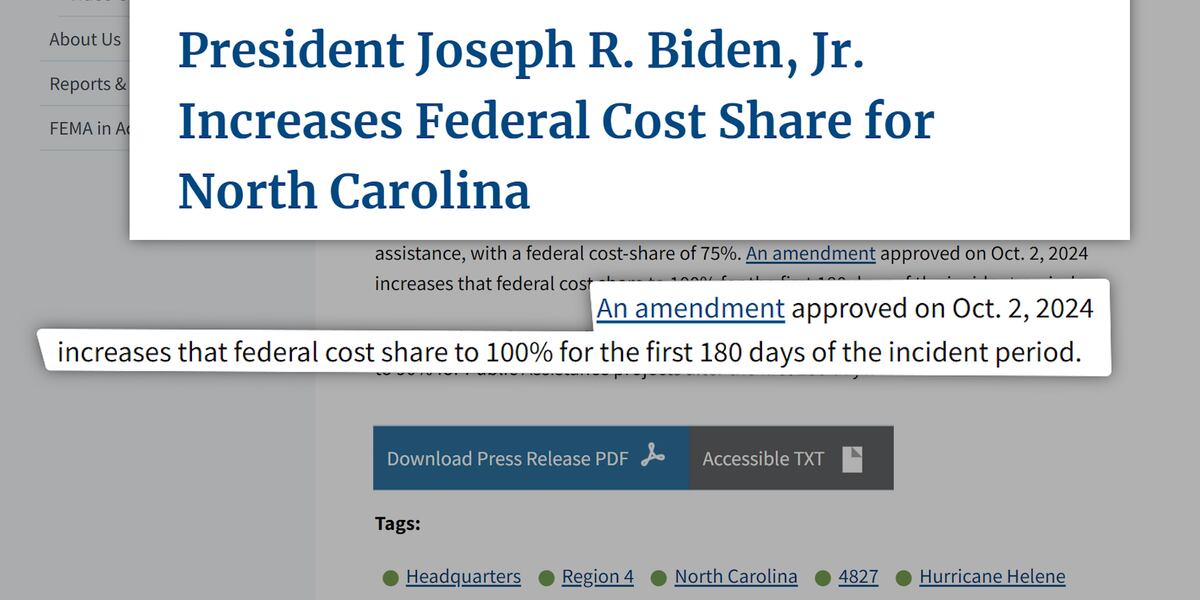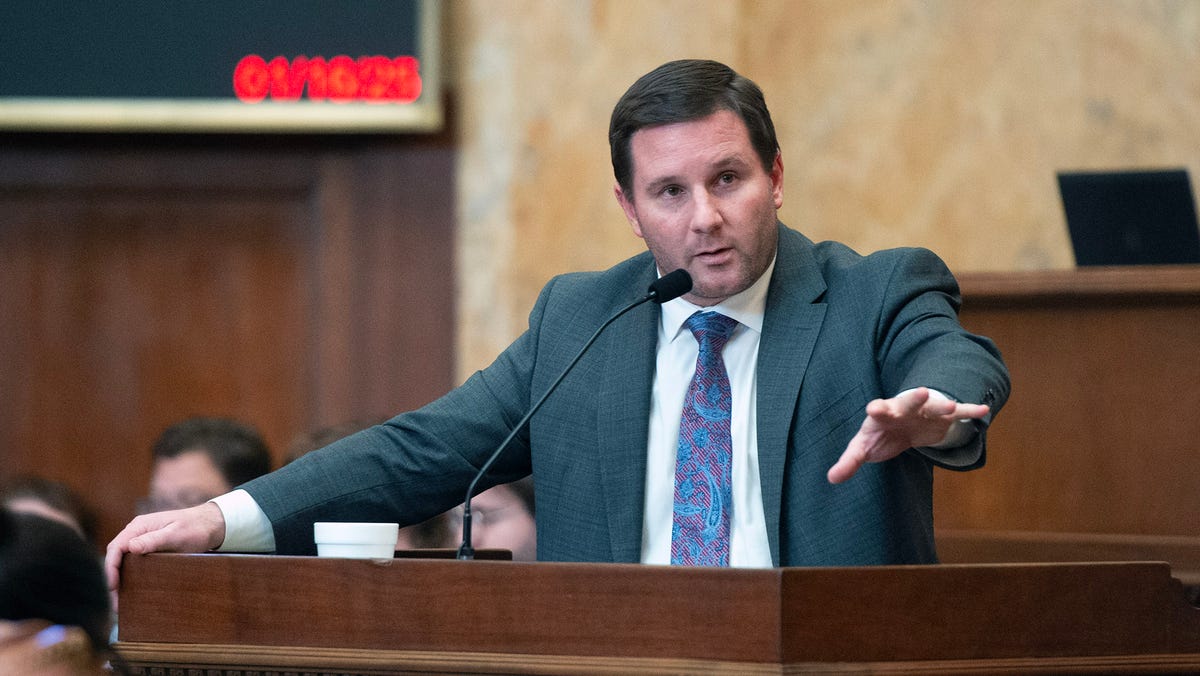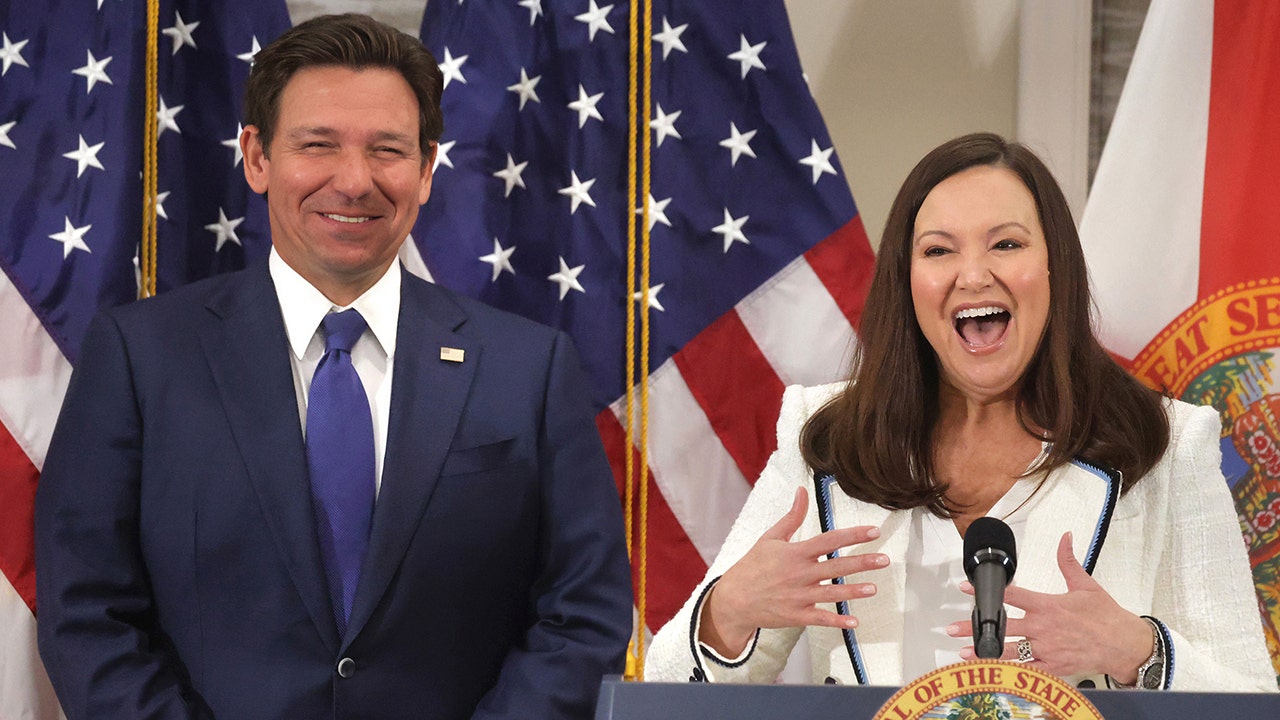North Carolina
Governor Cooper vetoes annual farm bill and state government ESG prohibitions

RALEIGH, N.C. — North Carolina Gov. Roy Cooper vetoed on Friday the General Assembly’s annual farm measure and another bill that would prevent state government activities like pension investing from being directed based on environmental or social justice concerns.
The vetoes bring the Democratic governor’s total for the year to eight. Next, the two latest likely will be subjected to override votes by Republicans, who now hold veto-proof majorities in the House and Senate. Both measures also received some votes from Democrats on the way to reaching Cooper’s desk earlier this month.
The annual farm bill covers more than 30 topics. But Cooper, like conservation groups and other Democrats, focused on a provision that would limit wetlands protections when combined with a recent U.S. Supreme Court decision and existing state law.
Opponents of the wetland language have said it would result in a massive amount of wetlands – important for absorbing flood waters and pollution – being open for development, harming water quality. In his veto message, Cooper wrote it would leave about half of the state’s wetlands unprotected.
The provision “means more severe flooding for homes, roads and businesses and dirtier water for our people, particularly in eastern North Carolina,” Cooper said, adding that while state government works to protect the state from flooding and stop pollution from contaminants, “this bill reverses our progress.” Environmental groups on Friday praised the veto and urged it be upheld.
Supporters of the provision say the impact of the language is overstated, affecting isolated wetlands, like those that turn into streams only when it rains. Sen. Brent Jackson, a Sampson County Republican and chief bill sponsor, said he hoped the veto would be overridden and that the measure supports the state’s top industry in agriculture.
Cooper’s “objection fails to consider our obligation to comply with federal law and regulations,” Jackson said. “The 2023 Farm Act ensures North Carolina is in compliance with federal laws.”
The other vetoed bill would ban state agencies from using “environmental, social and governance” standards to screen potential investments, award contracts, or hire and fire employees. It also says the state could not weigh how a company promotes sustainability, engages with its community, or structures its leadership to support those goals.
The measure stems from Republican efforts nationwide to counterweight a focus by big business on environmental sustainability and workplace diversity that they say is so extreme that it harms shareholders and pensioners.
At least two other states have already enacted laws banning such criteria, and elected officials in several other red states have derided them or proposed similar policies to stop investors who contract with states from adopting them.
And on state investments like those in pension funds, the bill says the state treasurer could solely consider factors expected to have a material effect on the financial risk or financial return of an investment.
“This bill does exactly what it claims to stop,” Cooper wrote. “For political reasons only, it unnecessarily limits the Treasurer’s ability to make decisions based on the best interest of state retirees and the fiscal health of the retirement fund.” State Treasurer Dale Folwell, a Republican, supported the bill.
Cooper also announced he signed seven bills into law, including one that would allow any city to hire “civilian traffic investigators” to respond to traffic crashes that only result in property damage.
He declined to sign a measure that would prohibit local governments from adopting rules preventing the expansion of certain energy services based on fuel type – such as natural gas. This means the measure, which also creates a method to follow when decommissioning solar energy projects, will become law once his 10-day window to act upon the bill expires late Sunday.
Featured video is ABC11 24/7 Livestream

North Carolina
Lexi Donarski, Alyssa Ustby lead No. 14 North Carolina women to 64-33 romp over SMU

DALLAS — Lexi Donarski had 15 points, Alyssa Ustby scored 12 and matched her career-high with 18 rebounds and No. 14 North Carolina rolled to a 64-33 victory over SMU on Thursday night.
Donarski did her damage from 3-point range, sinking 5 of 6 attempts for the Tar Heels (16-3, 3-2 Atlantic Coast Conference). Ustby collected her seventh double-double of the season with five of them coming in the last six games.
Indya Nivar had 11 points and Maria Gakdeng totaled 10 points and seven rebounds for North Carolina, which has won three in a row and 6 of 7.
Kaysia Woods scored 12 to lead the Mustangs (10-8, 2-4).
Nivar had nine points in the first half as North Carolina turned a 13-6 first-quarter lead into a 31-14 advantage at halftime. The Tar Heels shot just 39.4% from the floor before the break, but that looked red-hot compared to SMU, which shot 13.8% overall (4 for 29).
Donarski hit her only two shots of the third quarter — both from beyond the arc — and the Tar Heels led 44-22 heading to the fourth.
Woods had five points in the final period to help SMU top the 10-point mark in a quarter for the first time in the game.
North Carolina guard Alyssa Ustby dribbles during the second half of an NCAA college basketball game against SMU, Thursday, Jan. 16, 2025, in Dallas. Credit: AP/LM Otero
SMU allowed the biggest comeback in NCAA women’s basketball history its last time out when the Mustangs saw a 32-point lead with 1:37 left in the first half turn into a 72-59 loss to Pittsburgh. SMU was outscored 28-0 in the third quarter and 26-10 in the fourth.
North Carolina travels to play Pittsburgh on Sunday. SMU travels to play No. 3 Notre Dame on Sunday.
North Carolina
Fact Check: California, North Carolina get same recovery cost coverage from federal gov’t

CHARLOTTE, N.C. (WBTV) – As wildfires ravage parts of Los Angeles and Southern California this month, federal, state, and local authorities have mobilized resources to combat the flames and assist affected communities.
Their response echoes the efforts made in North Carolina just months ago, when Hurricane Helene left widespread devastation in its wake.
A viewer named Dina asked the following question: “Why is the federal government covering 100% of the recovery costs for the California wildfires, but not doing the same for Hurricane Helene recovery efforts in North Carolina?”
Her question relates to a claim being spread around social media that the government is allegedly paying for 100% of the damage in California, but not in North Carolina.
WBTV’s Fact Check team investigated the claims and found them to be false.
Here’s what we found.
Federal funding for wildfire recovery
On Tuesday, Jan. 14, President Joe Biden announced that the federal government would cover 100% of certain wildfire recovery costs in California for the next 180 days.
“The federal government is going to cover 100% of the cost for the next 180 days for things like firefighter overtime pay, debris removal, temporary shelters … It’s going to cost tens of billions of dollars to get Los Angeles back to where it was,” Biden said during a press conference.
Typically, the Federal Emergency Management Agency, aka FEMA, covers 75% of disaster recovery costs, with the remaining 25% funded by state and local governments. However, under federal law, the U.S. president has the authority to increase the federal cost-share for recovery efforts.
What about North Carolina?
Turns out, less than a week after Hurricane Helene hit North Carolina in September 2024, President Biden and FEMA announced that the same adjustment was made for Helene recovery in North Carolina.
Put another way: North Carolina has also had 100% of public recovery funds covered by the federal government since Oct. 2, 2024.
A release from the North Carolina governor’s office and FEMA explained how the president raised the federal contribution from 75% to 100% for the first 180 days of recovery. (The same time period that was just established in California).
After the six-month period, the cost-share for public assistance projects was increased from 75% to 90%. Click here to read the official FEMA release about this.
—> North Carolina Red Cross volunteers deploy to support wildfire victims in California
The verdict
President Biden’s decision to increase the federal cost-share for California wildfires is consistent with the aid provided to North Carolina following Hurricane Helene.
Claims that the federal government is covering a higher percentage of recovery costs in California compared to in North Carolina are false. Both states received identical cost-share adjustments.
If you have further questions or claims you’d like us to investigate, feel free to reach out to us at factcheck@wbtv.com.
—> State releases names of 104 Helene victims in North Carolina for 1st time: See list here
Copyright 2025 WBTV. All rights reserved.
North Carolina
Proposed federal whale rule that would have devastated NC businesses has been withdrawn

-
/cdn.vox-cdn.com/uploads/chorus_asset/file/25822586/STK169_ZUCKERBERG_MAGA_STKS491_CVIRGINIA_A.jpg)
/cdn.vox-cdn.com/uploads/chorus_asset/file/25822586/STK169_ZUCKERBERG_MAGA_STKS491_CVIRGINIA_A.jpg) Technology1 week ago
Technology1 week agoMeta is highlighting a splintering global approach to online speech
-

 Science6 days ago
Science6 days agoMetro will offer free rides in L.A. through Sunday due to fires
-
/cdn.vox-cdn.com/uploads/chorus_asset/file/25821992/videoframe_720397.png)
/cdn.vox-cdn.com/uploads/chorus_asset/file/25821992/videoframe_720397.png) Technology1 week ago
Technology1 week agoLas Vegas police release ChatGPT logs from the suspect in the Cybertruck explosion
-

 News1 week ago
News1 week agoPhotos: Pacific Palisades Wildfire Engulfs Homes in an L.A. Neighborhood
-

 Education1 week ago
Education1 week agoFour Fraternity Members Charged After a Pledge Is Set on Fire
-

 Business1 week ago
Business1 week agoMeta Drops Rules Protecting LGBTQ Community as Part of Content Moderation Overhaul
-

 Politics1 week ago
Politics1 week agoTrump trolls Canada again, shares map with country as part of US: 'Oh Canada!'
-
/cdn.vox-cdn.com/uploads/chorus_asset/file/23935558/acastro_STK103__01.jpg)
/cdn.vox-cdn.com/uploads/chorus_asset/file/23935558/acastro_STK103__01.jpg) Technology5 days ago
Technology5 days agoAmazon Prime will shut down its clothing try-on program
















